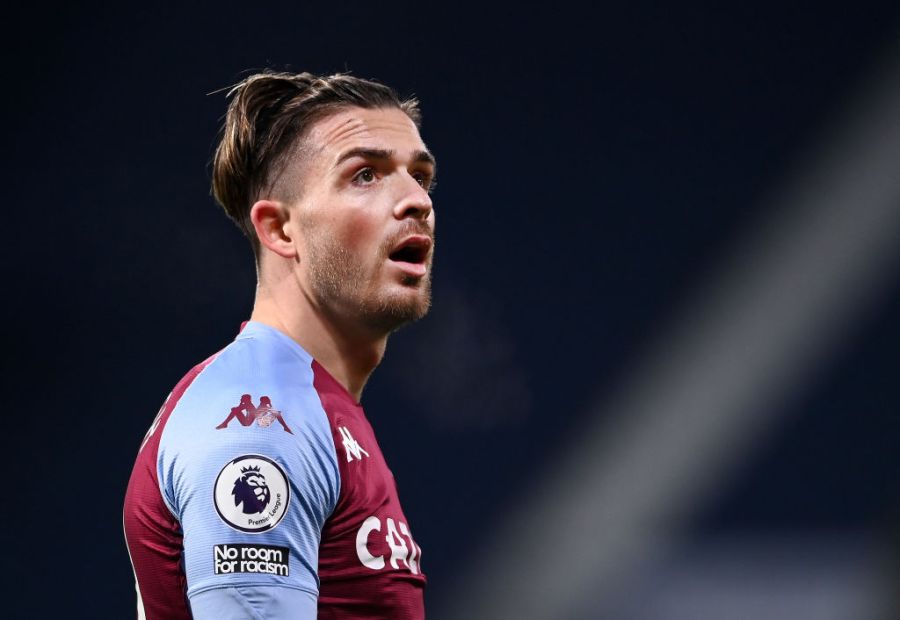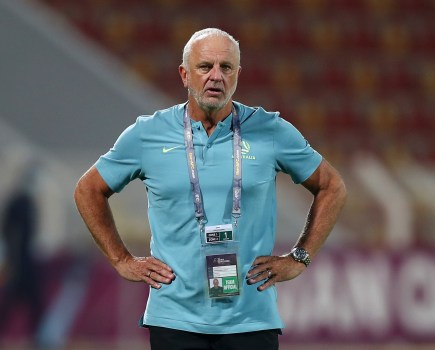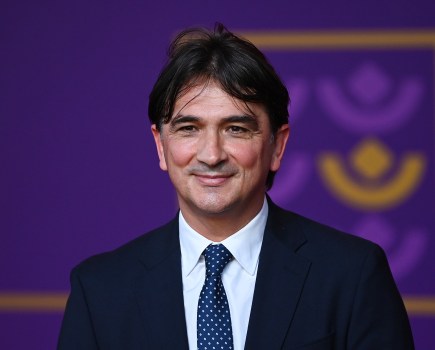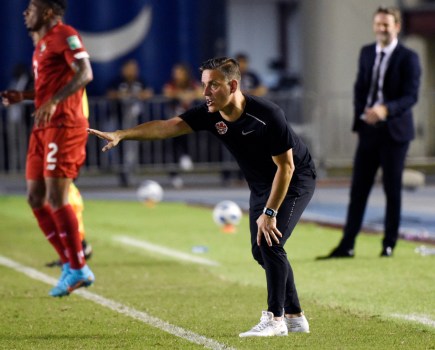Jack Grealish is the talk of the town after a sensational season for both Aston Villa and England, captaining his boyhood club in the Premier League and becoming a key man ahead of Euro 2020
Sublime Brazilian-like ball skills. Lashings of boldness and imagination. Exceptional ability to dribble at pace. Slicked back hair. Socks at half-mast revealing shin pads the size of a postage stamp. On the field of play, Jack Grealish has no trouble standing out in a crowd.
It’s what he’s always done, even cutting a conspicuous footballing figure as an infant. Just ask long-serving Midlands talent spotter Jim Thomas, who first clapped eyes on Jack when
the Birmingham-born showstopper was just six years old. Thomas, whose list of discoveries includes Villa, Liverpool and Rangers winger Mark Walters, Manchester United wide-man Lee Sharpe and Derby County striker Dean Sturridge, still has vivid memories of that damp Sunday morning back in 2002, turning up at a park in the Shirley district of Solihull and watching open-mouthed as the kid in the oversized shirt turned on the style for Highgate United in a six-a-side encounter.
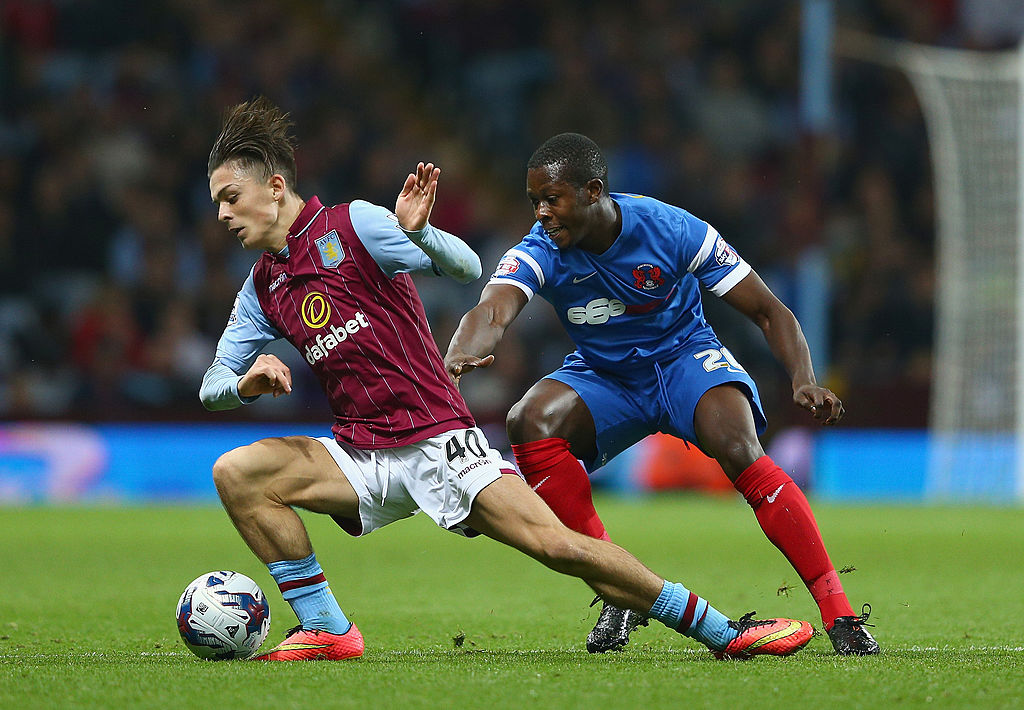
“You couldn’t fail to miss him,” Thomas told the Birmingham Mail last year. “As soon as I’m there, he’s got the ball in his own penalty area and has dribbled right through the team. He
was very small. It was like looking at Maradona.”
After introducing himself on the touchline to Jack’s mother Karen, Thomas straight away enquired if the youngster would like to join the Villa academy. The response? A big, fat yes. Like his father Kevin, Jack was a Villa fan through and through, a claret and blue disciple from top to toe. He was only four years old when he attended his first game at Villa Park in January 2000 – a pulsating 3-2 FA Cup win over Leeds United. At seven he was a season ticket holder and regularly went on the road to away games.
Growing up, Jack was particularly fond of Villa striker Gabby Agbonlahor, a virtual one-club man who spent 13 seasons in the first team there, is the club’s all-time leading Premier League goalscorer and won three caps for England. Agbonlahor was still at Villa when Grealish first broke into the club’s first team as a 19-year-old in 2015 and was a privileged witness to all of Jack’s early career milestones: his first start in the FA Cup against Blackpool in January 2015; his full Premier League debut in a 3-3 home draw with QPR in April; his pivotal role the same month as Villa upset Liverpool 2-1 in an FA Cup semi- final; his subsequent appearance in the final (albeit in a 4-0 hammering by Arsenal at Wembley), and first Premier League goal in a 3-2 loss at Leicester.
Agbonlahor and Grealish form quite the mutual appreciation society. Jack singles out Gabby as one of his role models, while the latter never tires of returning the compliment, happy to describe Jack as the most gifted player he played with and comparing the 25-year-old to Barcelona and Spain midfield great Andres Iniesta.
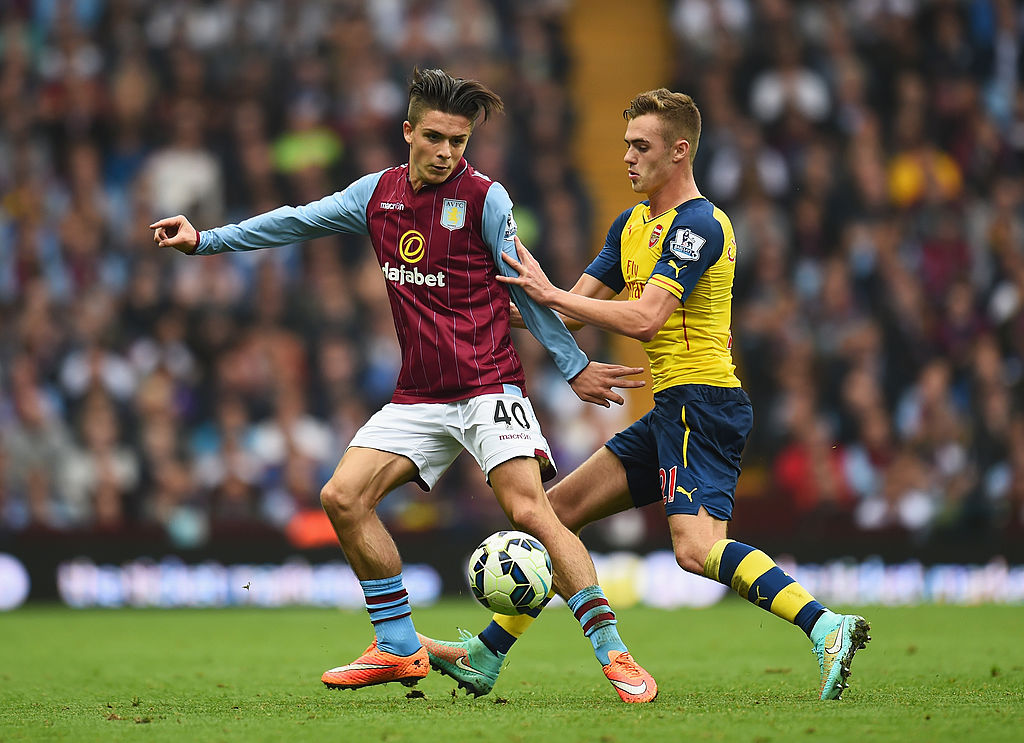
Grealish is just one branch of a towering oak of a Villa family tree. His dad Kevin was on hand to soak up the atmosphere at every Villa triumph of the last 40 years – their stunning league title in 1980-81, the conquest of the European Cup the following season and the 1995-96 League Cup – while his great, great grandfather Billy Garraty pocketed an FA Cup winners’ medal with the Villa way back in 1905. Garraty earned one England cap; Jack already has trumped him on that score, with five senior appearances for the Three Lions.
With roots like that, there was always every chance that Grealish would successfully climb the football ladder. He had the natural flair to die for, and was obsessed with the game from the earliest of ages. All he wanted to do was kick a ball, and that was what he did: in the school playground, in the back garden of the family home in Solihull in the West Midlands, a local park or any other space where he, his elder brother Kevan and his cousins could do their thing.
Nor did he ever want for desire. Every day he had a new trick to master, more work to do on his weaker left foot, a fresh frontier to reach. As a schoolboy, Jack trained with Villa three nights a week, yet he would have happily made the 30-mile round trip on a daily basis. His hunger was insatiable.
Villa, well aware that they had a gem in their midst, treated him with great care in the academy ranks. On the one hand, giving him plenty of licence to express himself and exploit his rare poise, guile and vision. On the other, teaching him good habits. In those days, he would often be deployed in age-groups a couple of rungs above his own and would often be used wide on the left, the rationale being that he would have a little more protection away from the trenches.
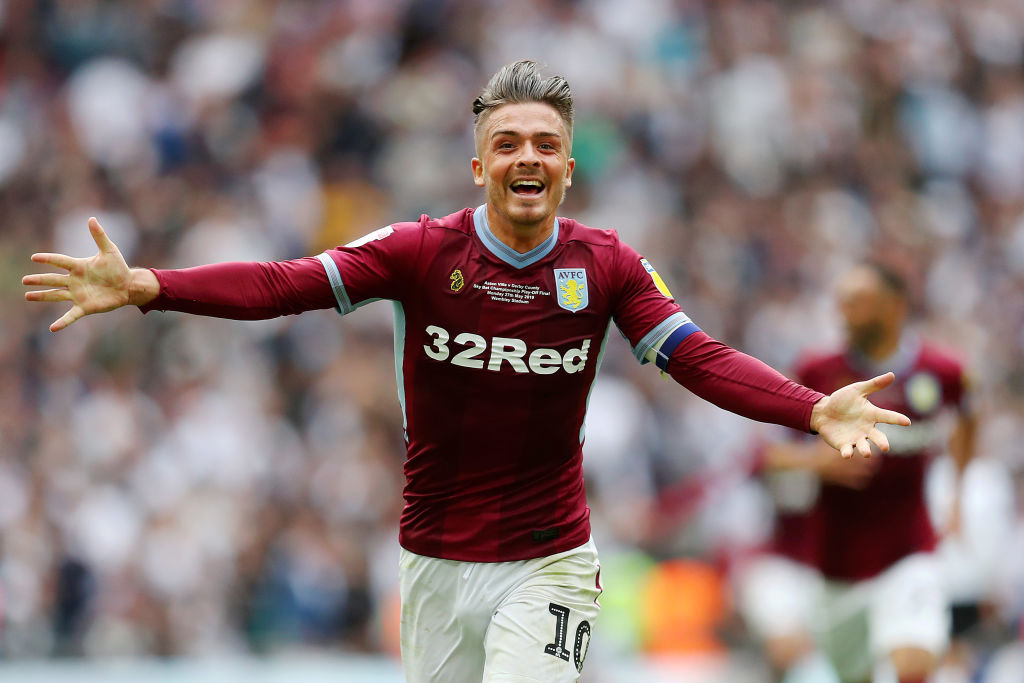
The developmental plan was a good one. At the age of 16, in March 2012, he enjoyed his first taste of the Premier League scene, picked by then-Villa manager Alex McLeish to sit on the bench during a 4-2 home defeat to Chelsea. The next season he was in Europe, starring in the Villa Under-19 side that won the UEFA NextGen Series – the continent’s leading youth competition. Of all those young Villa heroes, Jack was the only one to go on to establish himself at the club.
A few more of his rough edges were smoothed off during a loan spell in 2013-14 at English third-tier side Notts County, where the hurly-burly style of play and County’s season-long struggle against relegation toughened him up. He was kicked from pillar to post, yet still came back for more.
Without his sterling efforts that season – five goals, seven assists – Notts County would not have hauled themselves out of the drop zone at the death.
Throughout the campaign, he proved pure entertainment gold, exemplified by his first-ever senior goal, a wonderful effort in a 3-1 win over Gillingham in December. Here was the Grealish we have come to know and love, picking up a loose ball on the edge of the box, effortlessly gliding past four defenders and firing high into the net. The aftermath was memorable too, with Jack rushing to the main stand to embrace his dad, receiving a booking for over-celebrating, then pointing upwards, a tribute to his late younger brother Keelan, who passed away from cot death in 2000 when Jack was just four years old.
Then-Notts County manager Shaun Derry remembers Jack as a “chirpy” individual, who played with “freshness”. “He didn’t really seem to understand the importance of training at the time,” Derry told the Birmingham Mail. “He just wanted to play football, to play five-a-side games and full matches. When he did turn out and was on form, he was unplayable.”
Upon his return, Grealish earned his first senior run-out – a two-minute cameo versus Manchester City in May 2014 – yet struggled for first-team opportunities under Paul Lambert. The former Scotland midfielder generally gave the impression that Grealish was too raw and too ill-disciplined, once referring to him as a “baby”.
All was to change, though, when Lambert was replaced by Tim Sherwood in February 2015. The latter had much more regard for Grealish’s maverick abilities, and within a couple of months of Sherwood’s arrival, Grealish was featuring in Villa’s shock FA Cup semi-final victory over Liverpool, undoubtedly the watershed moment of his career. “That Liverpool game was huge, with a lot of expectancy and pressure,” said Sherwood afterwards. “It didn’t faze him. He grew.”
With Grealish’s profile growing on the pitch, more attention came off it. In 2015, the tabloids made a song and dance of him inhaling laughing gas and a couple of months later, pictures emerged of him sprawled on the street during a holiday in Tenerife. In the autumn of 2016, Villa fined him for attending a rowdy late-night party that got out of hand at a Birmingham hotel, and he still has plenty of maturing to do: in December he was banned from driving for nine months and fined over £80,000 for two motoring offences.
Equally controversial was his decision back in 2015 to switch international allegiance from the Republic of Ireland to England. Grealish, who qualified for the Republic through his grandparents, represented them at various under-age levels, but when push came to shove, he chose to nail his colours to the country of his birth.
“I thought about it for a long time, spoke with my family and my agent, but in the end, it came from me,” Grealish explained in the Daily Telegraph in 2016. “If I fulfil my ability, I feel I can play for England in years to come. I was born here, as were my parents, so I feel more English than Irish.”
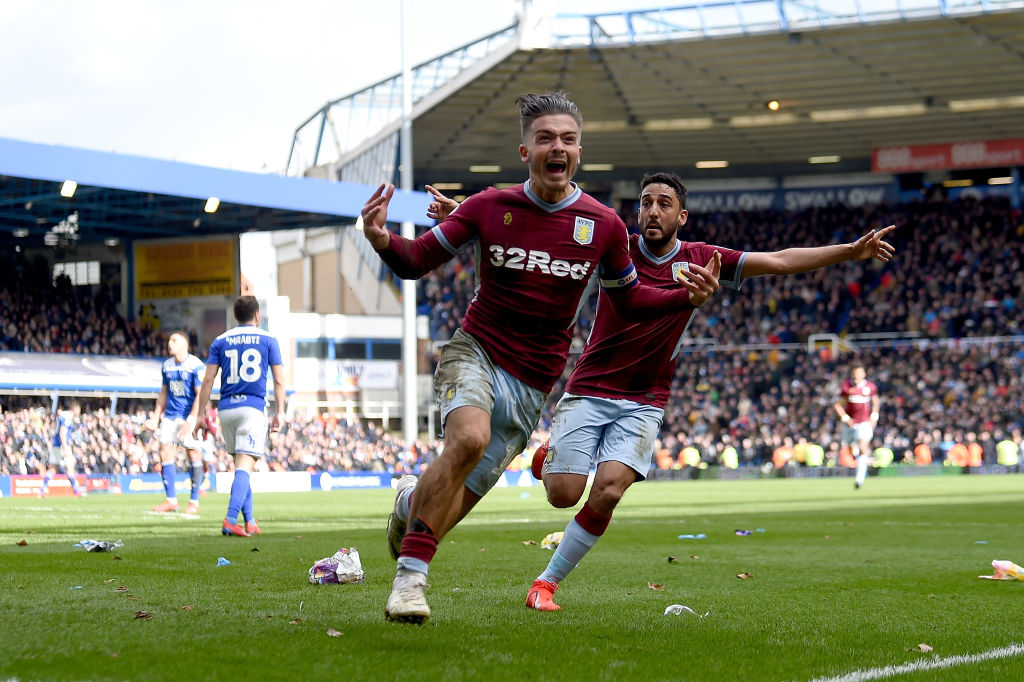
Inevitably, many Irish fans took it badly. They had seen Grealish as one of their own, someone so committed to his roots that as a schoolboy he played Gaelic football to a high standard for a leading Birmingham club. Now he was turning his back on them and the backlash was especially brutal on social media. “Congratulations on your international retirement,” snarkily wrote one Ireland supporter. That tweet, to say the least, has not aged well.
In September, almost five years after switching his international allegiance, Grealish made his England debut off the bench against Denmark. A month later, he made his first start in a friendly against Wales. “Excellent,” read the match reports. “Outstanding.” “Inventive.” “An impressive all-round display.”
“He is a different type of player to any that we have,” said Gareth Southgate after the game. Yet for a long time, the England manager had resisted calls to include Grealish in his squads, insisting that the likes of Raheem Sterling, Jadon Sancho and Marcus Rashford were all better options in his front three. In spite of more impressive performances in the autumn, there is a sense that when everybody is fit, Southgate may still prefer others.
For fans, there is no doubt: Grealish should be among the first names on the team sheet, although this popularity is relatively new. The playmaker has often been accused of diving, in spite of the fact that he attracts rough treatment. Last season he was fouled 167 times in the Premier League – more than anybody else in the division, a record that he also held in the Championship the year before.
Just like his time at Notts County, the three seasons that Grealish spent in England’s second tier played a vital role in toughening him up. His arrival in 2016-17 came off the back of a season in which his boyhood club had been relegated with a pitiful 17 points, where he himself had played 16 games and lost every single one – another unwanted record.
The pain of relegation affected Grealish more than most of his team-mates, as did the pressure from fans to get back up again – pressure that increased with each passing year. The Villans finished 13th in their first season, and more hurt followed in 2017-18 when they lost the play-off final against Fulham at Wembley.
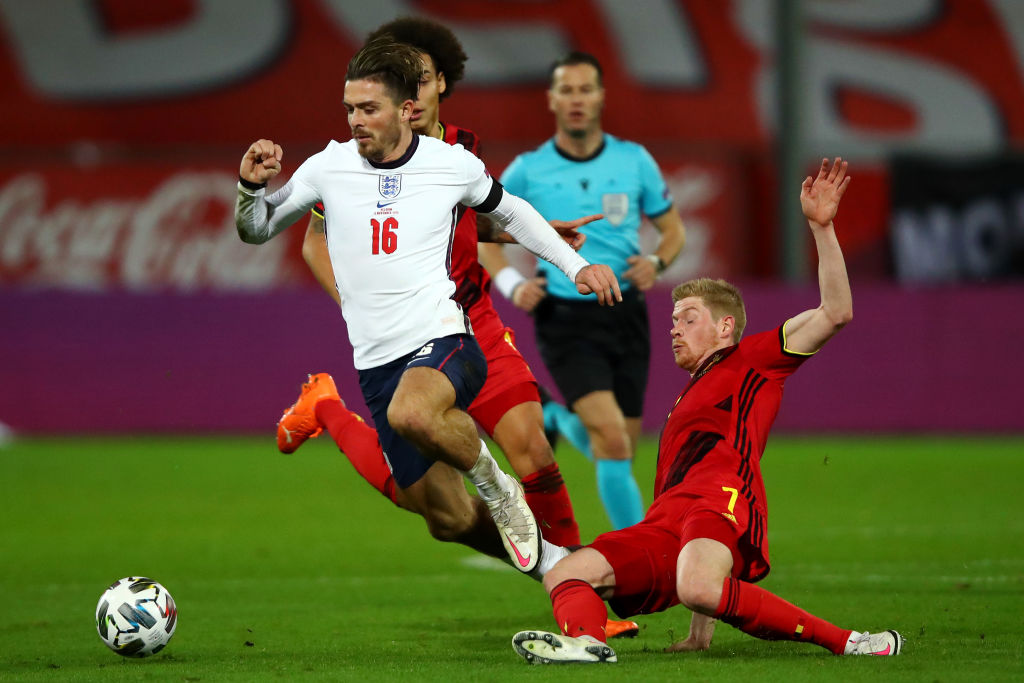
The defeat was a huge blow, and the hangover was felt into the following season. In October, with the club lying 14th, manager Steve Bruce was sacked and replaced by Dean Smith. A fellow boyhood Villa fan, the former Brentford boss quickly struck up an excellent relationship with Grealish. In March, following a three-month injury absence, the midfielder was named captain for a home clash with Derby County, and was instrumental in a 4-0 victory.
A week later, he retained the armband for the Second City derby at Birmingham City. Ten minutes in, the game took an extraordinary turn when a home fan ran onto the pitch and punched Grealish in the back of the head. Pictures from the day show him looking shocked, then slightly embarrassed, laughing nervously at the ensuing furore; then, finally, jubilant as he celebrated scoring the winner with his own fans.
“Best day of my life,” he grinned to an interviewer after the game. “To come here for the first time as captain of Aston Villa and score the winner – it’s what dreams are made of.”
From that point on, Villa were unstoppable. With Grealish in the team they won all but one of their remaining games, overcoming local rivals West Bromwich Albion in the play-off semi-
finals, before edging out Derby in the final. It was his third Wembley final with Villa and first taste of victory, for once getting his hands on the trophy instead of lying inconsolable on the pitch.
The heroics continued the following season, with a late goal v West Ham on the final day guaranteeing Villa’s Premier League survival. A summer transfer was widely expected yet resisted, with a five- year contract signed in September.
That deal has not put an end to the transfer rumours, but it has helped swell Aston Villa’s asking price to around £100 million. As have his performances – not only with England but also at club level, most notably in the 7-2 destruction of Liverpool. But it will not be easy for Jack to sever the ties that bind him to Villa Park, his home from home for almost two decades.
A big decision on Grealish’s future is approaching; things are getting serious. But you wouldn’t know it. He continues to carry on playing with every bit of nonchalance that his junior-sized shin pads suggest, knowing that he is living the dream.
Article by Nick Bidwell
This article first appeared in the February Edition of World Soccer. You can purchase old issues of the magazine by clicking here.

